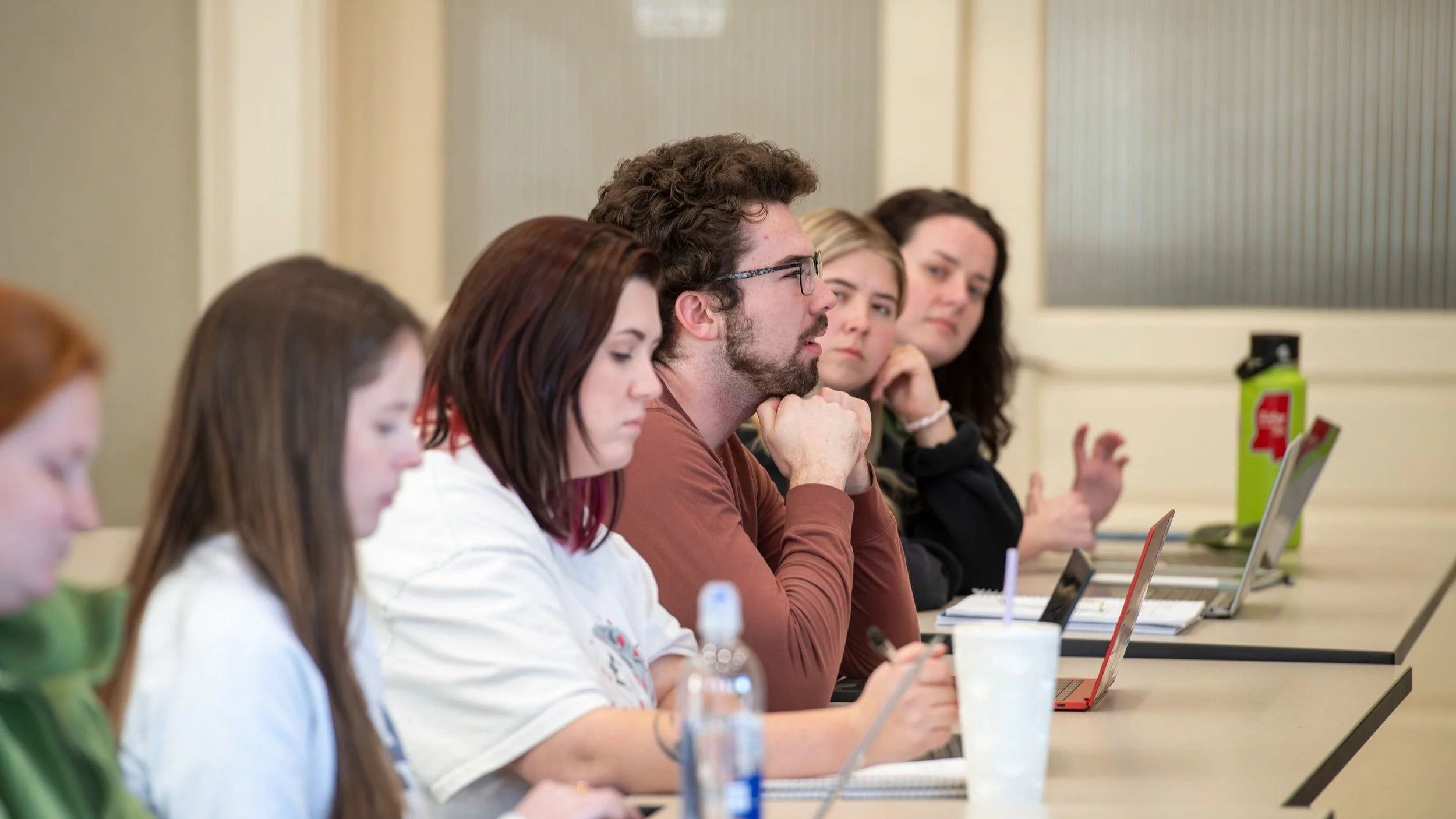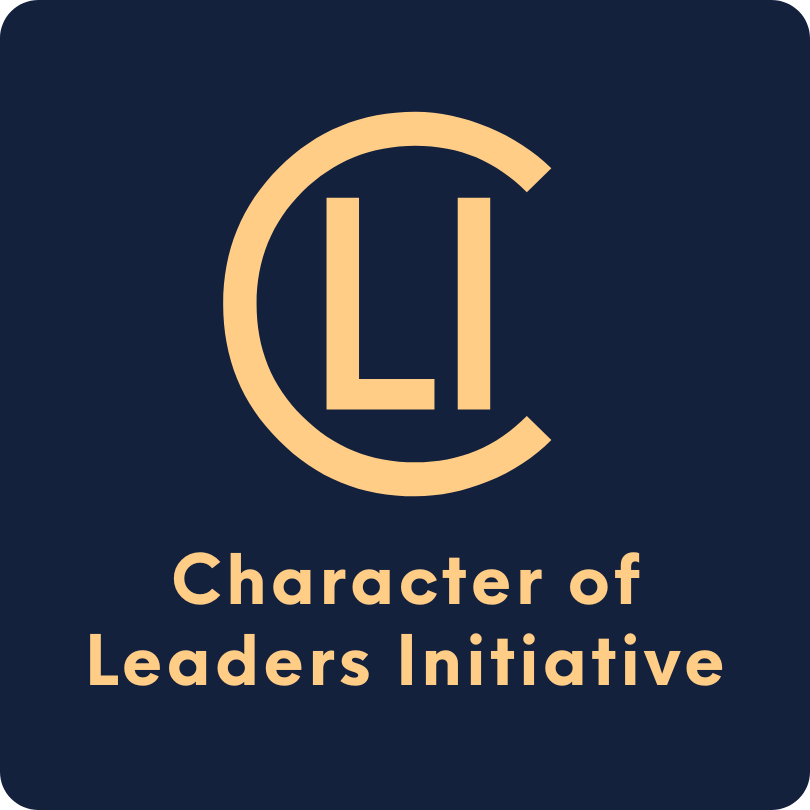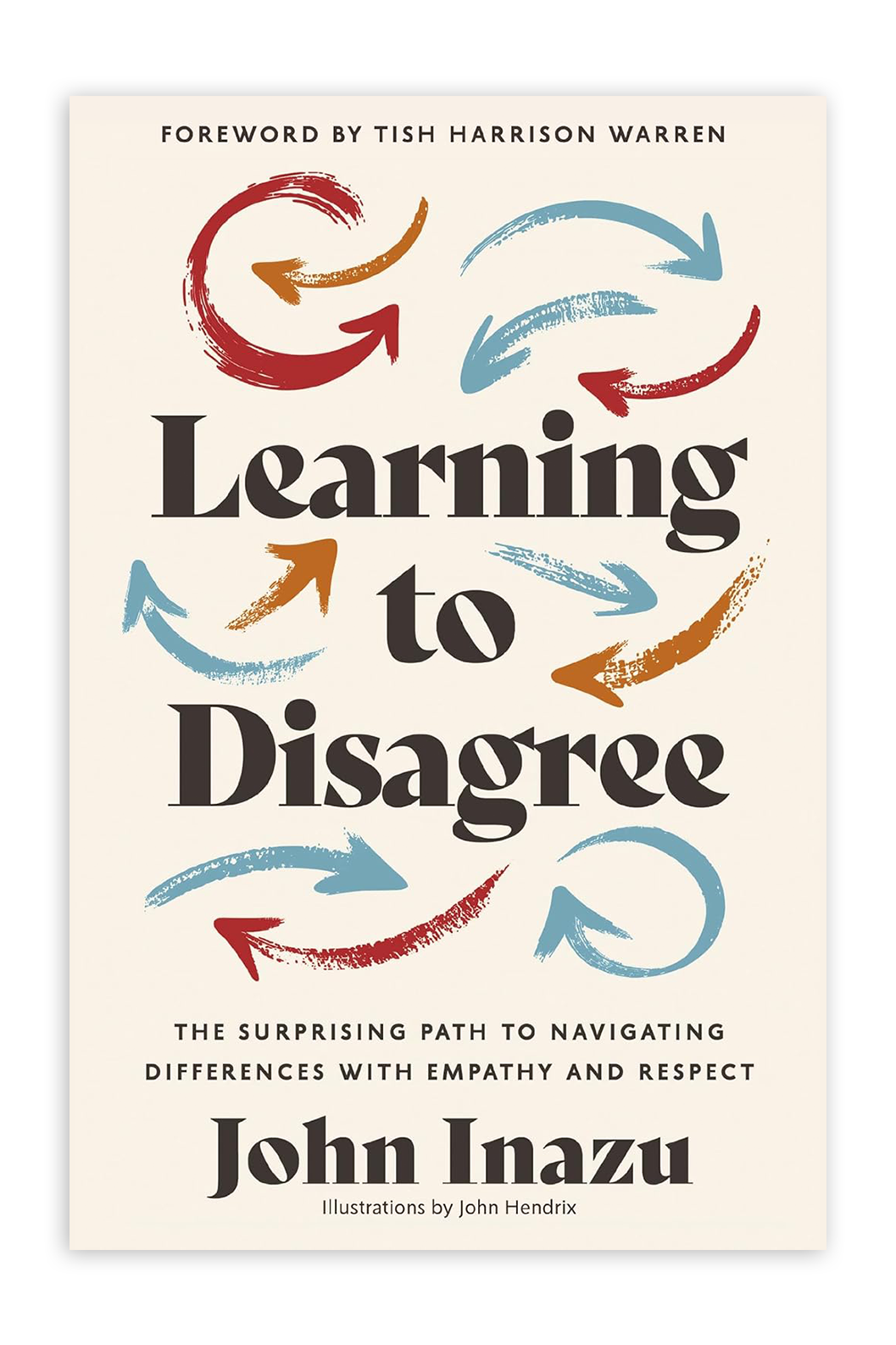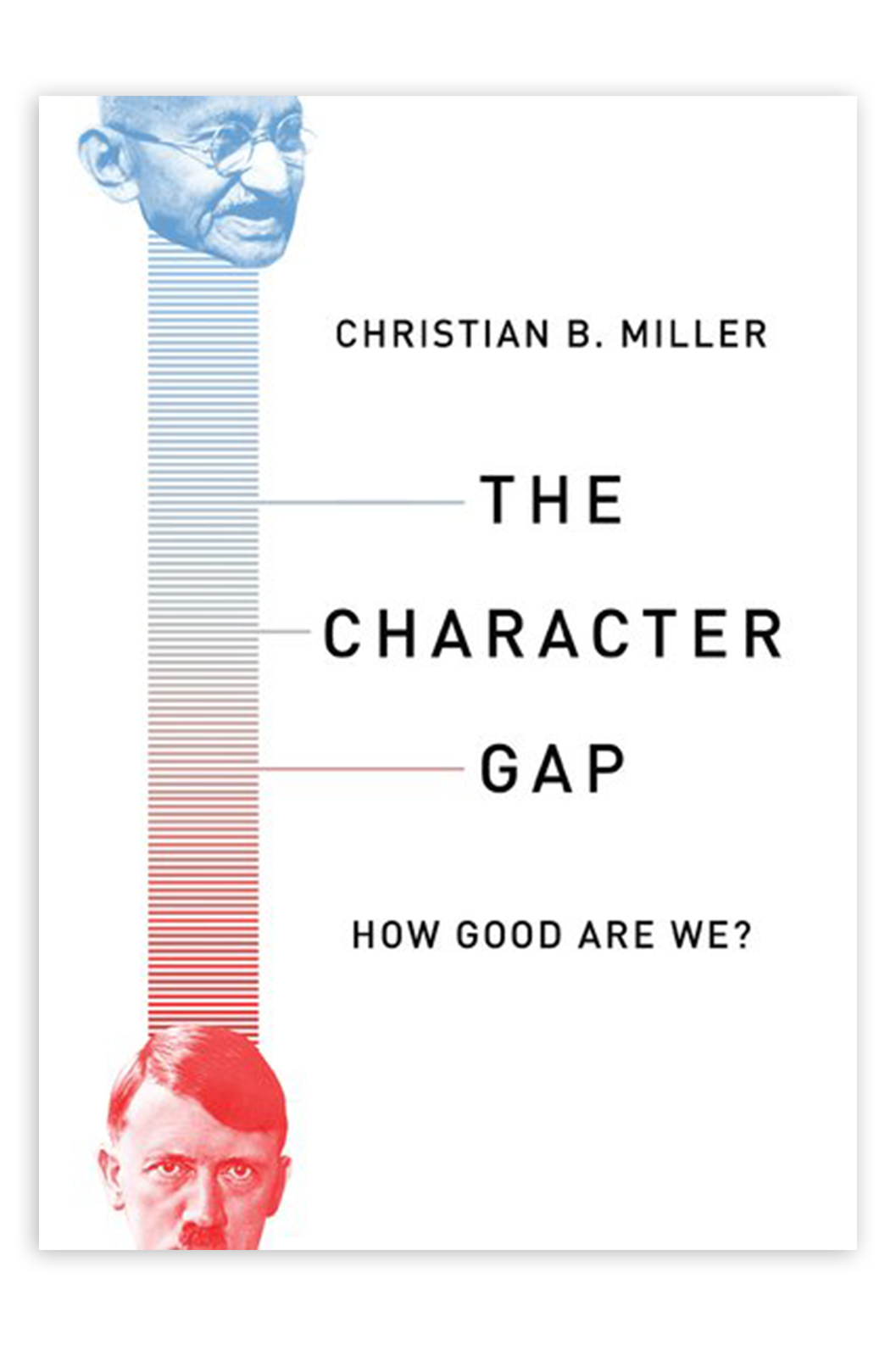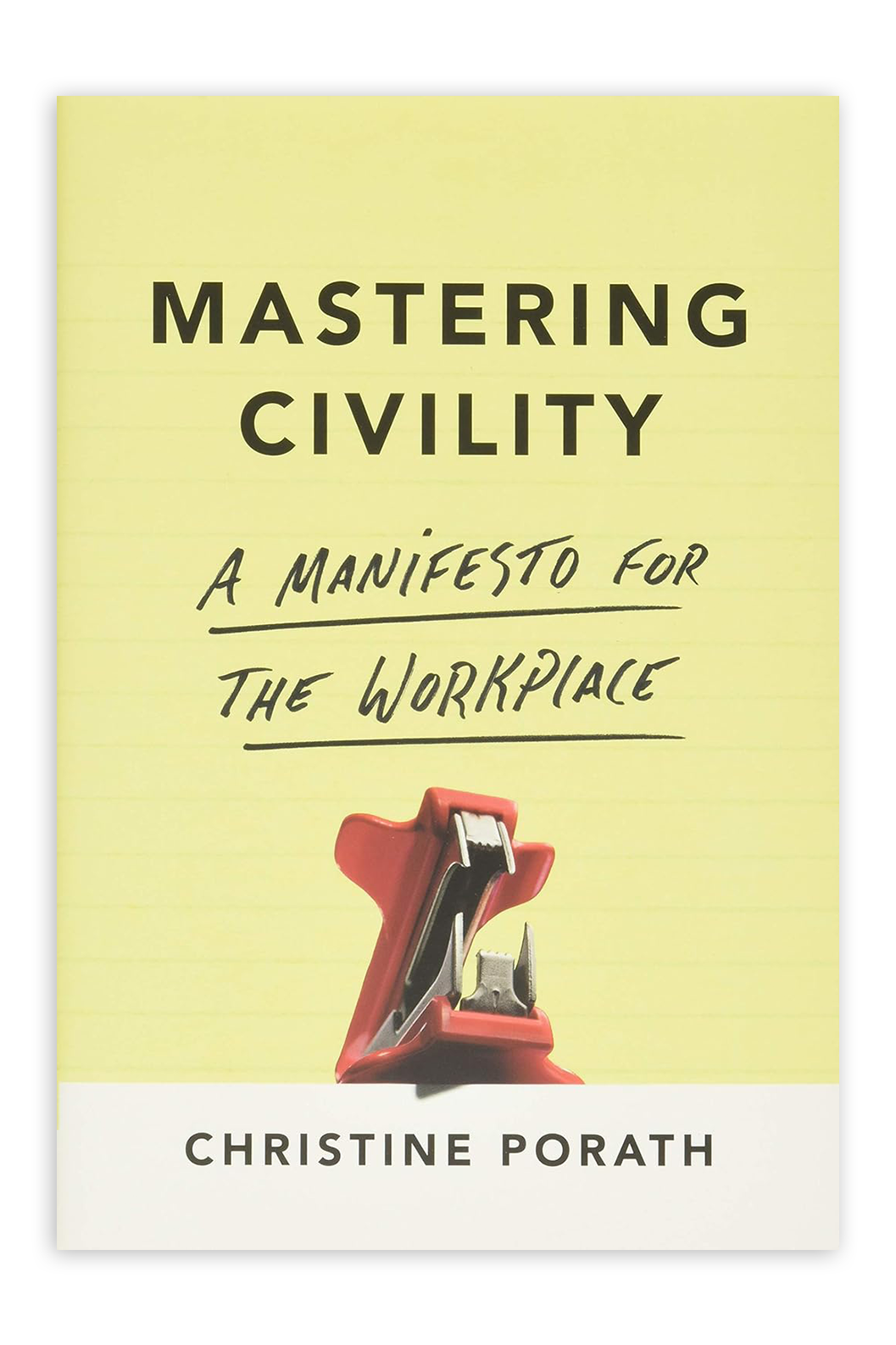Character of Leaders Initiative (CLI)
A collaboration between the Trent Lott Leadership Institute and The Center for Practical Ethics
“Watch your thoughts, they become words;
watch your words, they become actions;
watch your actions, they become habits;
watch your habits, they become character;
watch your character, for it becomes your destiny.”
– Frank Outlaw (Late President of the Bi-Lo Stores)
Leaders of character are not born; they are made. Today the work of forming leaders of character has reemerged as a priority for those universities that seek to create citizen scholars who know how to work together to solve complex problems. Our world has no shortage of complex problems. We need leaders with the passion, energy, and vision to make a difference; leaders who can see clearly the moral weight of their actions. Becoming that kind of person requires great personal effort and an environment where knowledge is married to practice. The Character of Leaders Initiative (CLI) is meeting that need.
CLI is a 3.5-year program funded by a generous grant from Wake Forest University's Educating Character Initiative awarded jointly to the Trent Lott Leadership Institute and The Center for Practical Ethics. Our work centers on integrating character education into every aspect of a student's experience at the University of Mississippi (UM). We foster moral, civic, and intellectual virtues on our campus through education, mentorship, and community engagement using a method which builds on the UM Creed and on decades of character education to create a unified and interdisciplinary approach for developing ethical and effective leaders.
Virtue
Development
Promoting respect, civility, fairness, intellectual humility, and personal integrity as essential traits for leadership.
Areas of Focus
By integrating moral, civic, and intellectual virtues, CLI is creating a culture of ethical leadership to help students and citizens navigate a complex world with empathy and integrity.
Integrated
Education
Merging curricular and co-curricular programs to create a cohesive learning environment.
Leadership
Preparation
Training students to serve as ethical leaders in their communities, careers, and personal lives.
Campus Culture Transformation
Promoting a shared commitment to ethical leadership across students, faculty, staff, and administration.
“Do the best you can until you know better. Then, when you know better, do better.”
- Maya Angelou
Current Awards
CLI Community awards
Honors & Awards
People have many strengths. One of those strengths is how easily some establish connections, friendships, and networks; in short, how they create community. The ways that these people create community takes many forms. Sometimes they provide consistent support to others, spanning across days, times, and in contexts that are both positive or stressful. Sometimes they serve as initiators, creating opportunities for others to participate, and seeking new ways to collaborate. Sometimes they serve as motivators, sharing their goals and pulling others into their projects. And sometimes they serve as bridges, acting as a conduit of communication and linking others together for shared activities and projects. In each of these cases, we can identify the power of a single individual for creating community: the development of a rich dynamic of connections, relationships, and interactions that extends from one to many.
Through their engagement with others, these individuals demonstrate the core virtues of Fairness, Respect, Integrity, Civility, and Intellectual Humility found in the UM Creed. They offer lived examples of these virtues in our community and for our community to shape our collective understanding of virtue and leadership.
By recognizing these individuals for their powerful impact on others, we not only honor their contributions to our campus community but also deepen our own moral imagination and leadership potential. They provide models for how these virtues establish, extend, and enrich community, which not only improves our university as a whole but also inspires us individually. Honoring these individuals as models helps students, faculty, and staff to be more cognizant of the impact they personally—as individuals—both have and can create through interactions, whether in educational spaces, residence halls, or campus offices.
Nomination Deadline: October 23rd
Please use the linked forms to nominate individuals in the categories of student, staff, and faculty. Three awards will be granted for each category, and there are no limitations on how many individuals one can nominate.
As part of your nomination, we’d like you (1) to describe the ways that this person creates community on our campus (using the examples above as a guide), (2) to give details of characteristic behaviors, practices, and communications that demonstrate how this person habitually demonstrates the virtues of fairness, respect, integrity, civility, and intellectual humility, and (3) to briefly describe how your engagement with this person has benefited you or others on our campus.
Date of Announcement: November 6th
Award recipients will receive a certificate of recognition, and a gift card for two lunches at Rebel Market (for themselves and a guest), with recognition for their impact on our campus through (1) public announcements at events, on the CLI website, and through the CLI Blackboard, (2) social media postings, and (3) interviews and stories.
Past Awards
CLI Community Awards
The Community Awards identify people with the power of creating community, the development of a rich dynamic of connections, relationships, and interactions that extends from one to many. Through their engagement with others, these individuals demonstrate the core virtues of Fairness, Respect, Integrity, Civility, and Intellectual Humility found in the UM Creed. They offer lived examples of these virtues in our community and for our community to shape our collective understanding of virtue and leadership. Learn more about them below.
CLI Exemplar Awards
The Exemplar Awards provide examples of excellence in living the virtues of the UM Creed—Fairness, Respect, Integrity, Civility, and Intellectual Humility—that can give us all concrete models of words, actions, and practices, encourage us to reflect on our own behavior, and inspire us to do better. We recognized 6 individuals from across the campus in the categories of Students, Staff, and Faculty—learn more about these inspirational models below.
CLI Scholars Fellowship
A year-long learning and research cohort supporting course development, research on virtue and character education, and professional development through workshops, conferences, and publications. We accepted 31 applicants into the cohort—learn more about these amazing scholars.
CLI Community Award Winners
CLI Exemplar Award Winners
Recommended Books
-
Learning to Disagree explores how we can engage meaningfully across deep divides without compromising our convictions. Drawing from law, theology, and personal experience, Inazu offers practical guidance for navigating disagreement with integrity and empathy. Through real-life stories and thoughtful reflection, Inazu makes a compelling case for principled pluralism in a polarized world.
The Character Gap: How Good Are We? by Christian Miller
-
In The Character Gap, Miller examines the discrepancy between how virtuous we believe we are and how we actually behave. Drawing on psychological studies, he argues that most people possess a mix of good and bad traits, falling between virtue and vice. Miller explores strategies for character improvement, such as emulating moral role models and cultivating self-awareness.
The Excellent Mind: Intellectual Virtues for Everyday Life by Nathan King
-
This book explores the significance of intellectual virtues—traits like curiosity, humility, honesty, and courage—in fostering effective thinking and responsible citizenship. Drawing from philosophy and psychology, King illustrates how cultivating these virtues can enhance personal relationships, civil discourse, and lifelong learning. The book offers practical guidance on developing intellectual character, emphasizing its role in both education and everyday life.
Mastering Civility: A Manifesto for the Workplace by Christine Porath
-
In Mastering Civility, Porath shows how small acts of respect and kindness at work can boost morale, performance, and retention. Drawing on research and real-world examples, she illustrates how incivility harms organizations and why leaders should prioritize a culture of respect. The book offers practical tips for building a more positive, productive workplace.

Blackboard Sign Up
Students, staff, and faculty can join the University of Mississippi CLI network. Just send us an email with the subject line “Add me to CLI Blackboard page” and we’ll use your university-affiliated email address to add you to the Blackboard page for access to additional events, materials, lists of courses, reading groups, and award opportunities.

